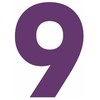First 625 - part 4 Flashcards
(159 cards)
un/le cheval

horse
masculine noun
ʃə.val
to pull
verb
tirer


un/le poisson
(fish)
masculine noun
pwa.sɔ̃
six

6
card. number
sis
[six] – The pronunciation of the /X/ in “six” varies. It is typically silent when used before a noun that starts with a consonant. For example,
in “six jours,” “six” sounds like “see.” However, when it is used before a word that starts with a vowel, /X/ takes on a /Z/ sound instead, and
when it’s at the end of a phrase or at the end of a number that’s not followed by a noun, like “J’en ai quarante-six,” the /X/ is pronounced
like “eese.”

un/le supporter
(fan (sports))
masculine noun
[supporter] – Use “un supporter”/sy.pɔʁ.tɛʁ/ or “un supporteur” if you refer to sports.
un/le pied

foot
masculine noun

un/le café
coffee
masculine noun
ka.fe

un/le jus
(juice)
masculine noun

une/la horloge
(clock)
feminine noun
[horloge] – Another common translation is “un réveil” = “an alarm clock.”
une/la salle de bains

bathroom
feminine noun
sal də bɛ̃
[salle de bains] – “Une salle de bains” is where you’d go to take a bath or shower. If you want to go to the bathroom (i.e. the toilet),
you’d ask “Où sont les toilettes?” = “Where are the toilets?”
un/le petit déjeuner

breakfast
masculine noun

un/le cheval
(horse)
masculine noun
ʃə.val
plat

flat
adjective
pla
un/le animal

animal
masculine noun

lourd
(heavy)
adjective
luʁ
[lourd] – “Pesant” is a less common option.
un/le nez

nose
masculine noun
ne

un/le ordinateur
(computer)
masculine noun
une/la tasse

cup
feminine noun
tɑs

sentir
(to smell)
verb
sɑ̃.tiʁ
fan (sports)
un/le supporter

dix

10
card. Number
dis
sentir

to smell
verb
sɑ̃.tiʁ
computer
un/le ordinateur

une/la lumière

light (noun)
feminine noun
ly.mjɛʁ









































































































































